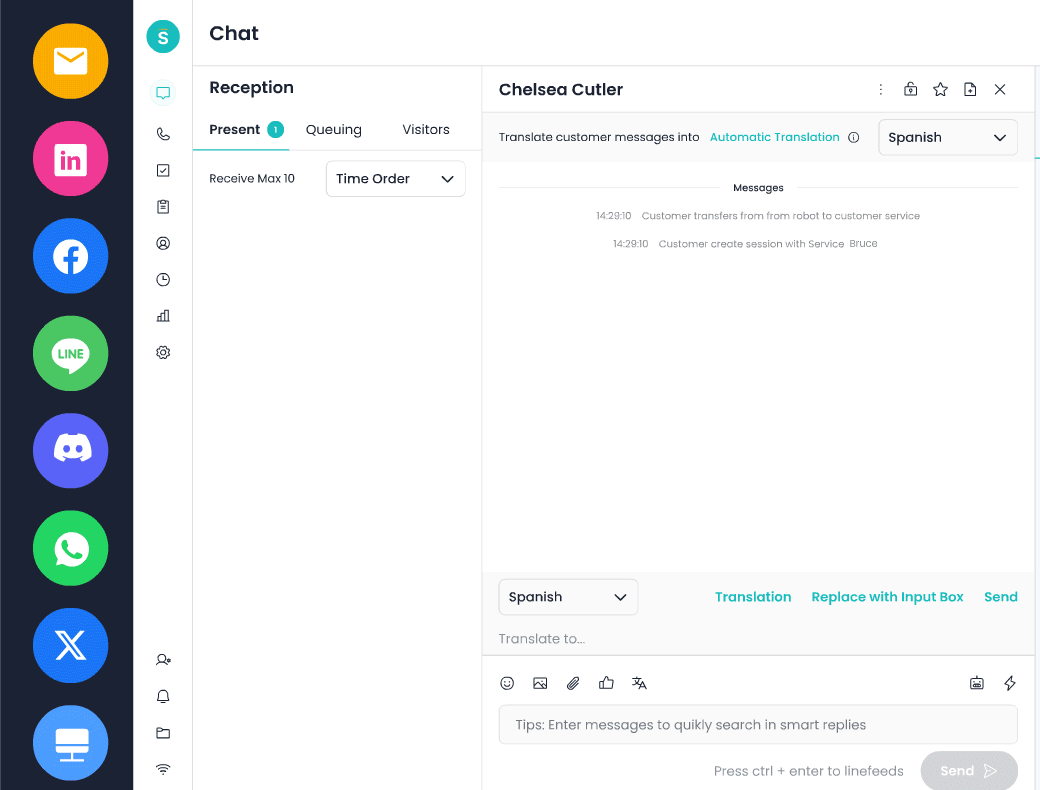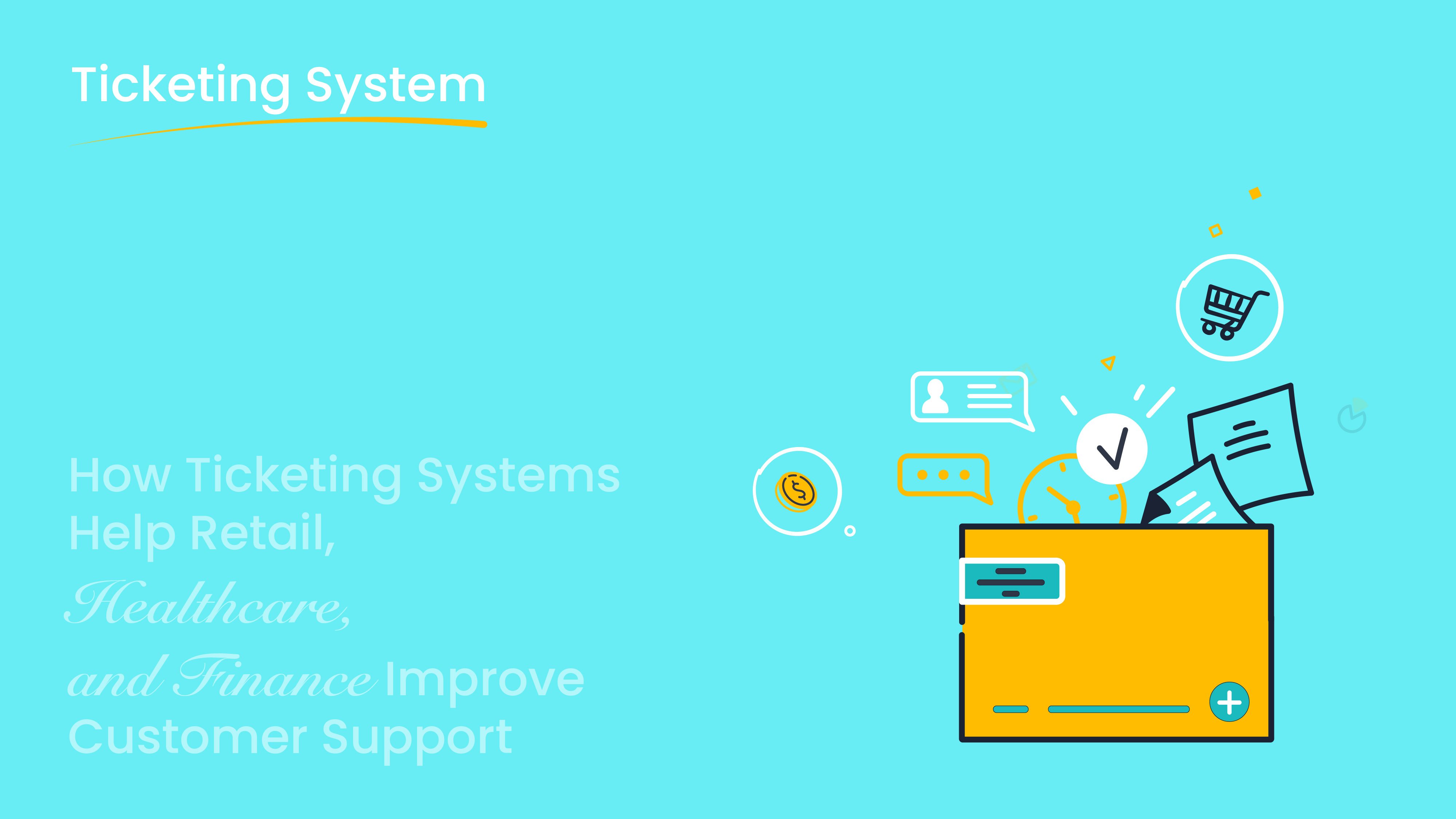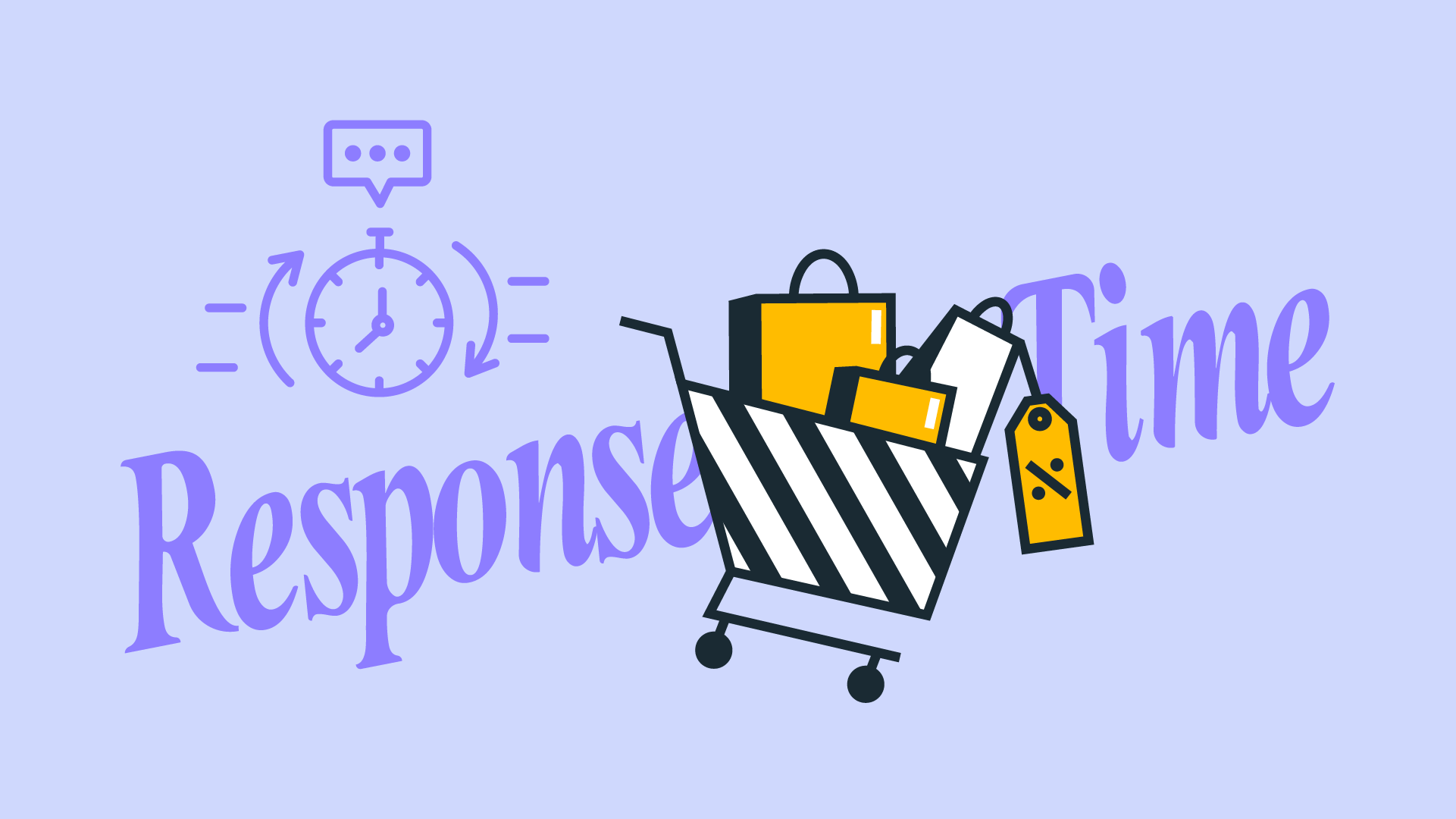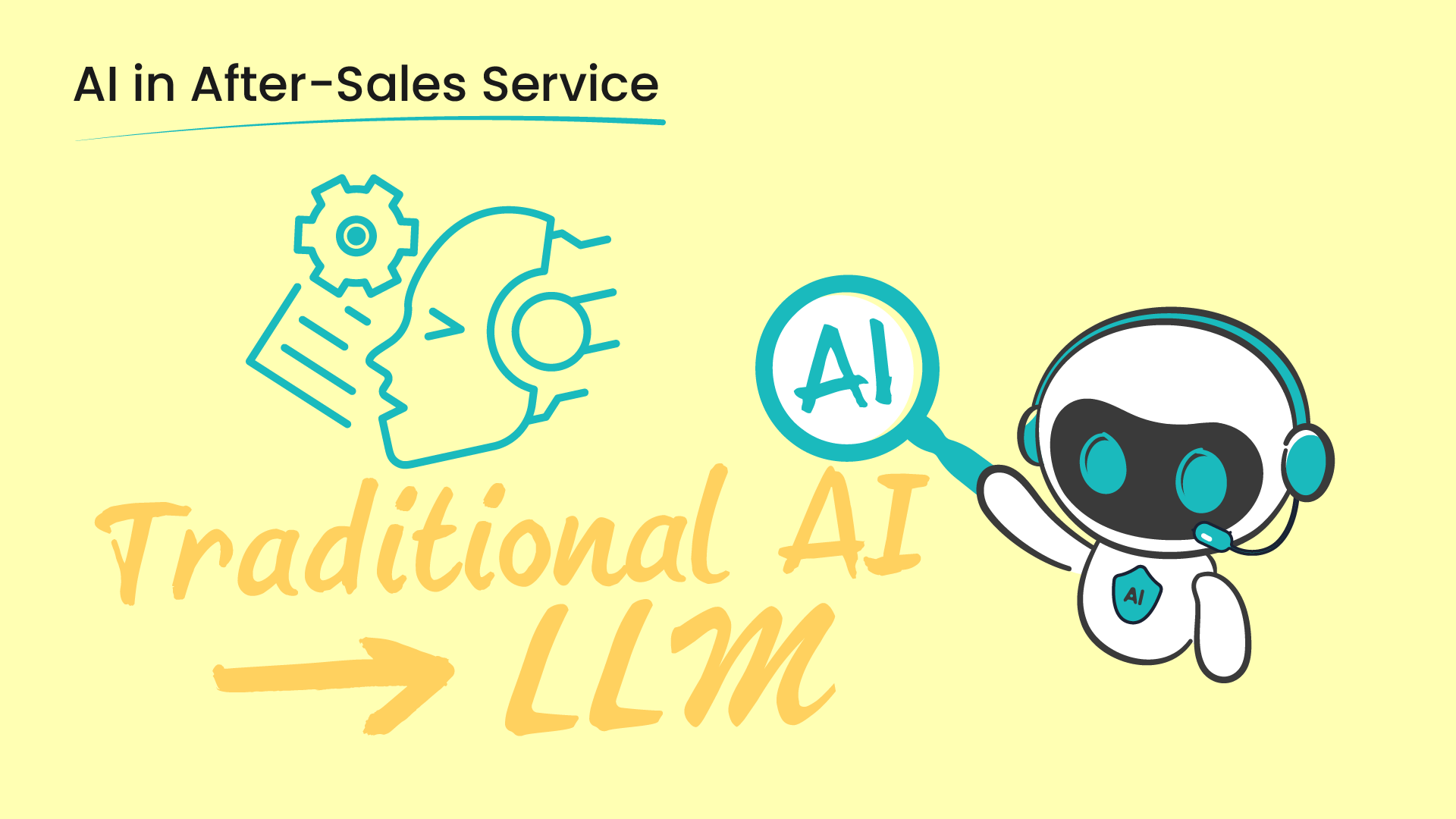In the competitive landscapes of retail, healthcare, and finance, exceptional customer support is more critical than ever. Each of these industries faces unique challenges in managing customer interactions, from handling high volumes of inquiries to ensuring compliance with regulations. Ticketing systems have emerged as a powerful solution to streamline these processes, enabling businesses to provide efficient, personalized, and secure support.
According to a study by Microsoft, 96% of consumers say customer service is an important factor in their choice of loyalty to a brand.
By integrating ticketing systems, companies can enhance their customer service capabilities, ensuring timely responses, seamless communication across channels, and improved overall customer satisfaction. This article explores how Sobot ticketing solution systems are transforming customer support in these key industries, driving better outcomes for both businesses and their customers.
Retail Industry: Enhancing Customer Experience
In the competitive retail landscape, delivering an exceptional customer experience is essential for brand loyalty and sales growth. Ticketing systems have emerged as a vital tool for retailers, helping them manage high inquiry volumes, offer personalized support, integrate customer touchpoints, and streamline returns and complaints. Here’s how these systems are transforming the retail industry.
Managing High Volumes of Inquiries
During peak periods like sales events, retailers experience a surge in customer inquiries. Ticketing systems help by automating the logging, categorizing, and routing of queries, ensuring faster response times. For example, a major retailer saw a boost in customer satisfaction by implementing a ticketing system during the holiday rush.
Personalized Customer Support
Personalized support is key to enhancing the retail customer experience. Ticketing systems, integrated with CRM platforms, enable service representatives to access a customer’s purchase history, preferences, and previous interactions, providing more relevant and timely assistance.
A leading fashion retailer used a ticketing system to track customer interactions across various channels. When customers contacted the store about returns or product inquiries, the system provided tailored recommendations based on their history. 76% of customers expect companies to understand their needs and expectations.
Omnichannel Integration
Consumers today interact with retailers through multiple channels. Ensuring a seamless journey across these touchpoints is vital for a cohesive shopping experience. Ticketing systems facilitate omnichannel integration by consolidating interactions from various platforms into a single system.
For instance, a large electronics retailer used a ticketing system to track customer interactions across social media, email, and in-store purchases. Omnichannel marketing campaigns achieve a 250% higher rate of purchases and engagement compared to campaigns that use only a single channel.
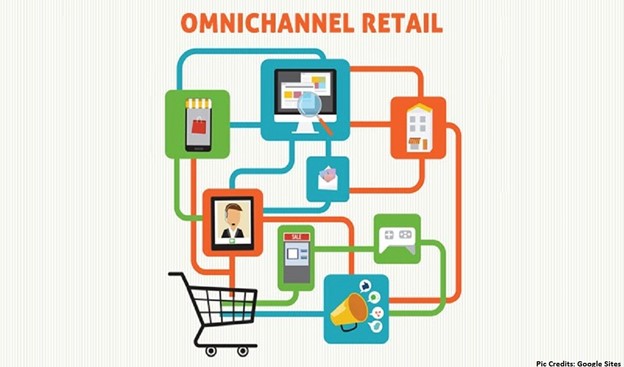
Handling Returns and Complaints
Efficient handling of returns and complaints is critical to customer retention. Ticketing systems streamline these processes by automating tasks like generating return labels and tracking items. They also categorize complaints based on urgency to ensure prompt resolution.
A retail chain that adopted a ticketing system saw a substantial decrease in processing times for returns and complaints. Good customer service can increase customer retention by up to 80%.
Integration Differences with Existing Retail Systems
When choosing a ticketing system, retailers must consider how well the solution integrates with their existing infrastructure. Custom-built ticketing platforms offer significant advantages in this regard, providing tailored solutions that align with specific business needs and seamlessly integrate with current systems. In contrast, ready-made solutions, while often more affordable initially, may require additional adjustments to fit seamlessly into existing retail environments. Here’s a detailed comparison of the two approaches:
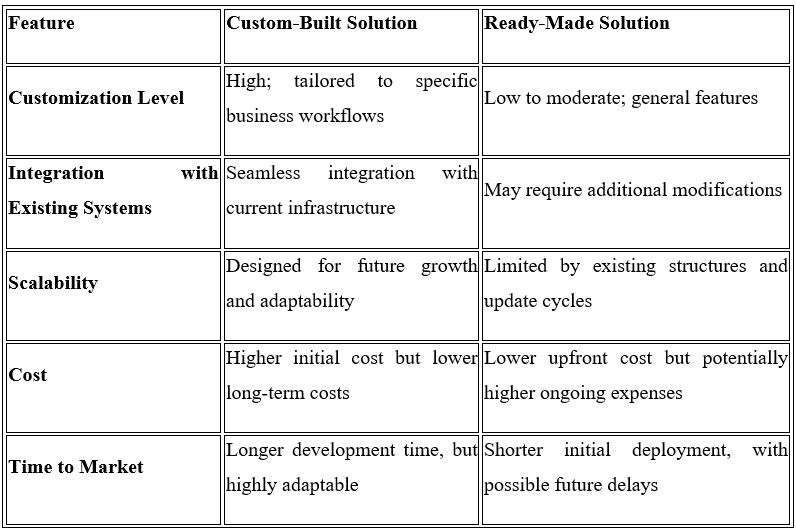
Comparison Table
Healthcare Industry: Streamlining Patient Communication
In healthcare, quality care extends beyond treatment to include timely, accurate, and personalized support. Ticketing systems enhance patient care by efficiently managing inquiries, appointment scheduling, and follow-ups. By streamlining communication, these systems prevent delays and unresponsive service, ensuring that every patient interaction is handled promptly, leaving a positive impression even in high-pressure situations.
Importance of a Ticketing System for Healthcare Companies
1. Enhanced Patient Engagement and Experience
A ticketing system can transform the way healthcare providers engage with patients. By efficiently managing inquiries and feedback, healthcare organizations can foster stronger relationships with their patients. Engaged patients are more likely to have better health outcomes and a more positive perception of their healthcare provider.
2. Uncovering and Addressing Patient Pain Points
A ticketing system allows healthcare providers to identify and address patient pain points proactively. By tracking common issues and feedback through the system, healthcare organizations can make informed decisions to improve their services. Regular surveys and feedback requests can also be integrated into the system, providing valuable insights into patient needs.
3. Boosting Patient Referrals Through Positive Experiences
Satisfied patients are more likely to recommend healthcare facilities to others. A ticketing system ensures that every patient interaction is smooth and satisfactory, leading to positive word-of-mouth and increased referrals. 94% of healthcare patients use online reviews to evaluate providers.
4. Timely and Accurate Responses Can Save Lives
In healthcare, the margin for error is minimal. A ticketing system helps ensure that patient inquiries are handled quickly and accurately, reducing the risk of errors that could have serious consequences. For example, if a patient contacts the healthcare provider for medication information, a well-organized ticketing system can ensure that the correct information is provided promptly, potentially saving lives.

(Source: freepick.com)
How Patients Benefit from a Ticketing System
1. Informed Decision-Making
A ticketing system helps patients make informed decisions by providing timely and accurate responses to their inquiries. Whether they need information about treatment options, appointment availability, or healthcare products, the system ensures that their questions are answered quickly and thoroughly.
2. Stress-Free Healthcare Experience
A ticketing system minimizes the stress associated with healthcare by providing a seamless and organized process for managing patient inquiries and appointments. From the initial inquiry to post-treatment follow-ups, the system ensures that patients feel supported and informed at every step.
3. Efficient Post-Treatment Follow-Ups
The healthcare journey doesn’t end after the treatment. A ticketing system enables healthcare providers to maintain regular follow-ups with patients, ensuring they are recovering well and addressing any post-treatment concerns. This not only enhances patient satisfaction but also contributes to better health outcomes.
4. Appointment Scheduling and Follow-ups
Automating appointment reminders and follow-up communications helps reduce missed appointments and improve patient compliance. For example, a ticketing system can send reminders to both patients and providers, ensuring everyone stays on schedule. 78% of physicians consider medical virtual assistants to be highly beneficial for scheduling their appointments.
5. Managing Patient Inquiries and Support
Handling patient inquiries, such as prescription requests or medical advice, requires urgency. Ticketing systems prioritize these requests, ensuring that critical cases receive prompt attention. This leads to better patient outcomes and a more efficient workflow.
6. Patient Record Management
Ticketing systems securely manage patient records, allowing healthcare providers to access accurate information when needed. This ensures that patient care is personalized and consistent, improving overall healthcare quality.
7. Telemedicine and Remote Consultations
With the growing demand for telemedicine, ticketing systems support virtual consultations by managing scheduling, reminders, and follow-ups. Successful implementations have shown how these systems enhance the efficiency and organization of remote healthcare services. A report by Global Virtual Assistants in Healthcare Market – Analysis and Forecast, 2019-2029, predicts that the revenue for the medical virtual assistant market will grow at a compound annual rate of 26.29% from 2019 to 2029.

(Source: freepik.com)
Finance Industry: Ensuring Secure and Efficient Service
In the finance industry, managing sensitive information and complex processes requires precise and secure systems. Ticketing systems are transforming how financial institutions handle inquiries, detect fraud, ensure compliance, and streamline client support.
Handling Complex Financial Queries
Financial institutions face numerous complex queries related to loan processing, account issues, and investment advice. Ticketing systems help manage and prioritize these inquiries efficiently. Chatbots offer 24/7 service, effectively addressing up to 33% of the most common banking inquiries.
Fraud Detection and Prevention
Fraud detection is crucial in finance, and ticketing systems play a key role in managing it effectively. These systems enhance fraud prevention by monitoring customer interactions and identifying suspicious activities. For example, a credit card company that adopted such a system significantly improved its fraud management by using automated alerts to promptly investigate unusual transactions. This proactive approach helps in reducing fraud losses and safeguarding financial transactions from potential threats.
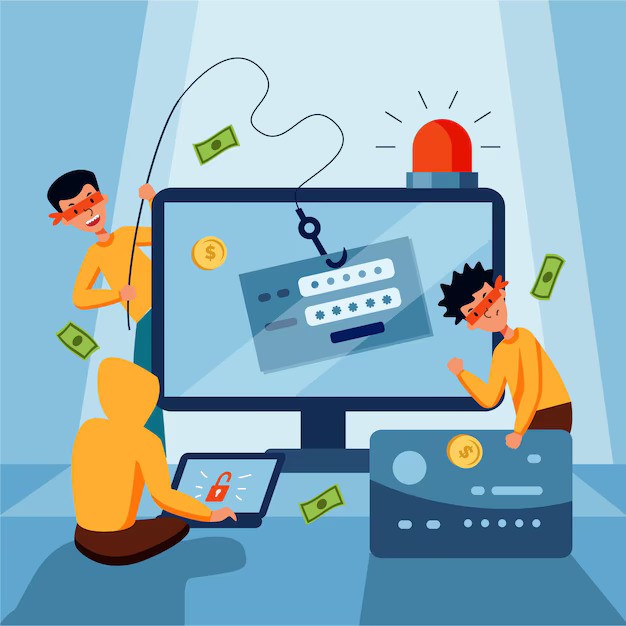
(Source: freepik.com)
Regulatory Compliance and Documentation
Compliance with financial regulations requires meticulous documentation of customer interactions. Ticketing systems assist in maintaining comprehensive records, aiding in audits and compliance checks. For instance, a financial services firm used its ticketing system to provide detailed logs for a successful audit, ensuring adherence to regulatory standards.
Client Onboarding and Support
Efficient client onboarding and support are essential for customer satisfaction. Ticketing systems streamline onboarding by automating document collection and account setup, reducing onboarding time for a wealth management firm. They also centralize ongoing support, allowing faster issue resolution and improving client satisfaction.
Making the Right Choice for Your Retail Business: Sobot
Selecting the ideal digital ticketing platform is vital for future scalability, customer satisfaction, and overall business growth. Sobot offers the perfect solution with its advanced features tailored to retail needs:
- Scalability: Designed to grow with your business, handling increasing customer demands seamlessly.
- Omnichannel Integration: Engage customers across multiple channels, ensuring a consistent and unified experience.
- Ease of Integration: Sobot smoothly integrates with your existing systems, minimizing disruption.
- AI-Powered Automation: Enhance workflow efficiency and provide intelligent customer service.
- Comprehensive Support: Benefit from extensive training and support to maximize system utilization.
Choose Sobot ticketing solution to drive unparalleled growth and customer engagement in your retail business.
Conclusion
Ticketing systems have proven to be essential tools in enhancing customer support across retail, healthcare, and finance. By efficiently managing inquiries, streamlining processes, and ensuring secure communication, these systems significantly improve customer satisfaction and operational efficiency.
As industries continue to evolve, the potential for ticketing systems to further revolutionize customer support is immense. Businesses that invest in or optimize their ticketing systems today will be better positioned to meet future demands and deliver exceptional service.
For those seeking a robust and versatile solution, Sobot offers cutting-edge ticketing systems designed to meet the unique needs of various industries, driving growth and customer engagement. Consider adopting Sobot ticketing solutions to elevate your customer support to the next level.
(The information in the article is collected from public channels. If the data or pictures are infringing or inaccurate, please contact us to delete or modify it.)
